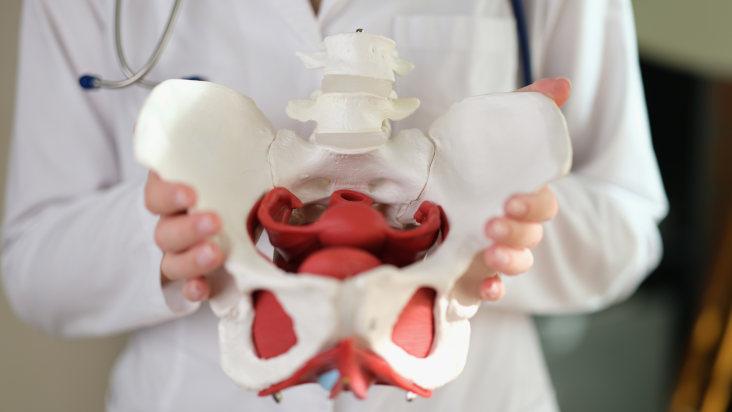Pelvic organ prolapse (POP) is more common than many people realize — but it often goes undiscussed. Many women feel uncertain or even embarrassed about the condition, yet POP affects millions of women across all ages. If you’re experiencing symptoms, know that you are not alone and that help is available. Call Sheridan Memorial Hospital Women’s Clinic to schedule your appointment today.
What Is POP?
POP occurs when one or more pelvic organs — such as the bladder, uterus, rectum or vagina — shift downward due to a weakened pelvic floor. The pelvic floor is a network of muscles, ligaments and connective tissue that normally supports these organs. When it weakens, organs may press into or even bulge outside the vagina, causing a variety of symptoms.
Symptoms
Symptoms can vary but often include:
-
Leaking urine or difficulty emptying the bladder
-
Bowel problems, including constipation or needing to press inside the vagina to pass stool
-
Vaginal bulging or pressure, sometimes described as the feeling of a tampon “half in and half out”
-
Pain or pressure in the lower back or pelvis
-
Discomfort or pain with sex
-
Vaginal noises during exercise or intimacy
Symptoms usually develop gradually, though they can occasionally appear suddenly (for example, during strenuous exercise).
Who Is at Risk?
POP can affect women at any stage of life. Risk factors include:
-
Pregnancy and childbirth
-
Aging and menopause
-
Family history of POP or connective-tissue disorders
-
Obesity
-
Previous pelvic surgery, such as hysterectomy
-
Chronic constipation or straining
-
Long-term coughing from smoking or lung disease
-
Heavy lifting or high-impact activities
By age 80, nearly half of all women experience some degree of POP.
Treatment Options
The good news: effective treatments are available, and not every woman needs medical intervention. Together with your OB/GYN, you can decide what’s best for you. Options may include:
Lifestyle and self-care
-
Increase dietary fiber and hydration to ease bowel movements
-
Maintain a healthy weight
-
Strengthen your core with low-impact activities like yoga or Pilates
Medical therapies
-
Pessaries: Simple devices placed in the vagina to support pelvic organs, relieving bulging or leaking.
-
Pelvic floor therapy: Guided exercises (such as Kegels) taught by a physical therapist to strengthen the pelvic floor correctly and safely.
Surgical treatment
If POP significantly affects your quality of life, surgery may be considered to restore support and relieve symptoms.
Postpartum Care and Prevention
The postpartum period, often called the “fourth trimester,” is an ideal time to check in on your pelvic floor health. Preventive steps — such as pelvic floor therapy, diet changes, or the use of a pessary—can help reduce future risk of POP.

